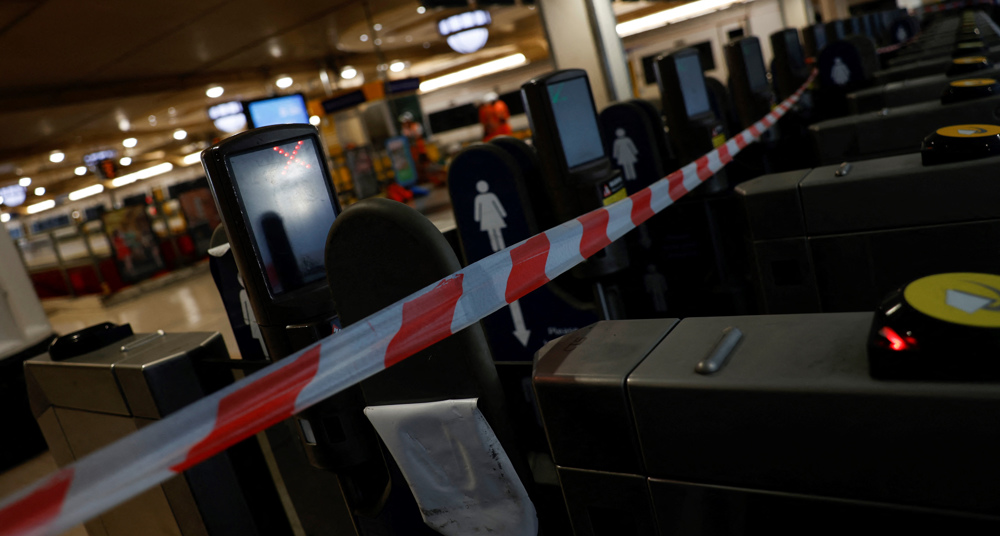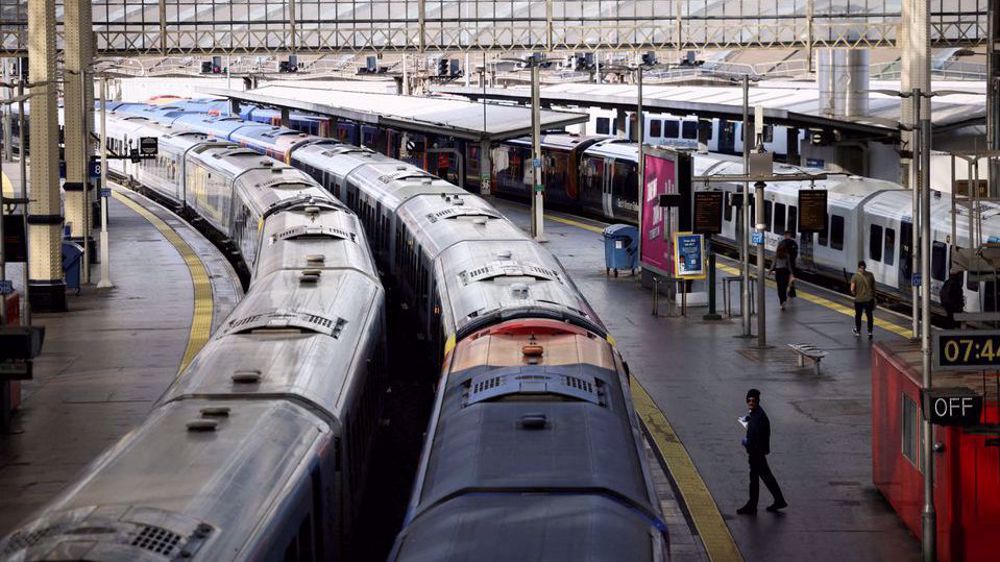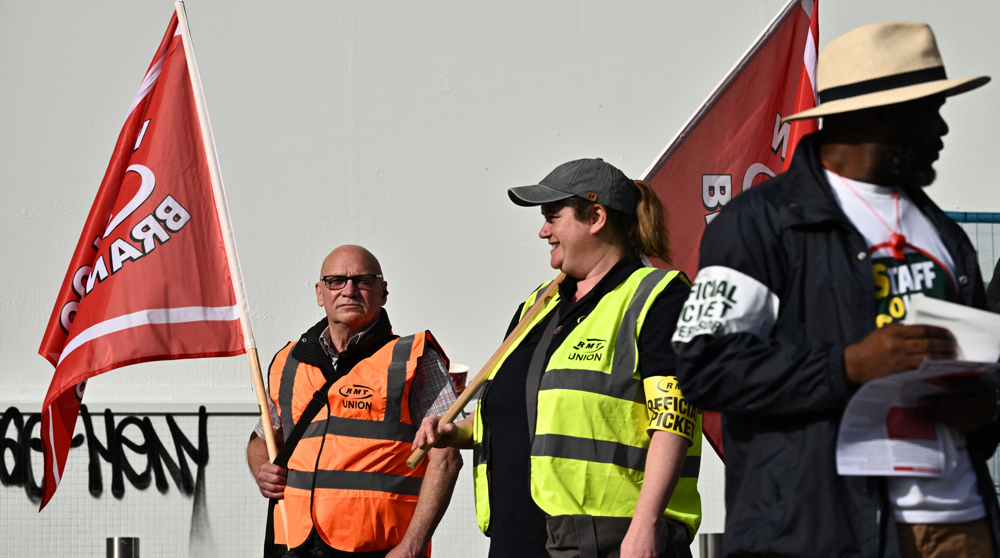British passengers face disruption as train drivers strike over pay
Rail passengers are facing disruption as train drivers have walked out across the United Kingdom in yet another series of strikes over low pay and working conditions.
Thousands of members of the train drivers’ union Aslef were on strike on Saturday amid a dispute over pay and “modernization” on the railway.
The strike affects nine train companies, disrupting most intercity trains between London and the Midlands, northern England and Scotland, and into south Wales.
Parts of the UK, including the West Midlands, south-west England and Kent, have no trains running on Saturday.
The train network has already been crippled by previous strikes, including a three-day walkout in June that was the country's biggest for 30 years.
Train companies and other industries are demanding higher pay to mitigate inflation that is forecast to hit 13 percent by the end of the year.
The union said operators had failed to make a pay offer in line with the increase in the cost of living.
The Aslef general secretary, Mick Whelan, said the companies "will not give our members an increase."
"They blame the government... while the government says it's down to the train operators. So we are caught in a Catch-22 situation where each side blames the other," he said.
Further rail strikes are planned for the next weekend.
The United Kingdom, with the inflation rate at a 40-year high of 9 percent in April, is struggling with a huge rise in the price of energy.
Economists say Britain is expected to have the highest inflation among the counties of the Group of Seven (G7) not just this year, but also in 2023 and 2024.
US-allied fuel tanker attacked by Iran still burning in Strait of Hormuz: IRGC
Attacks on hospitals, schools ‘strike at life itself’: Pezeshkian
Iran’s attacks on US bases ‘legitimate’ response to source of aggression: Araghchi
IRGC targets US intelligence centers, military depots in 11th wave of attacks
US-Israeli attacks damage 5 hospitals, medical centers in Iran: MP
Unlike US, Iran prepared for a long war: Security chief
Missile sirens will never stop in Israeli-occupied territories, Iran warns
Leader’s martyrdom will drive Iran to greater dignity and victory: Senior cleric












 This makes it easy to access the Press TV website
This makes it easy to access the Press TV website